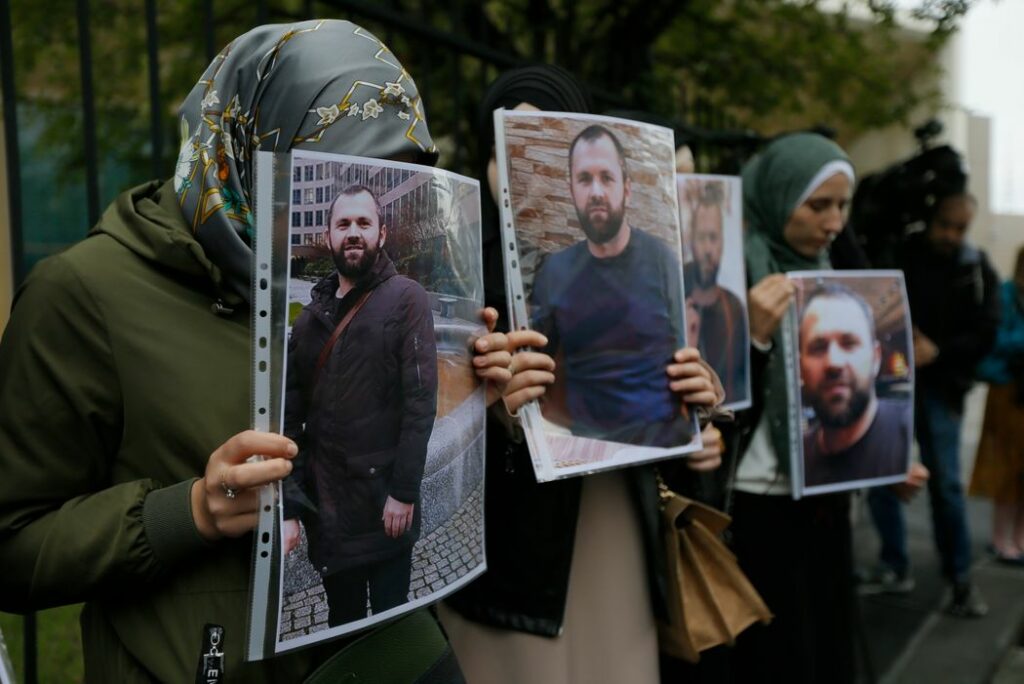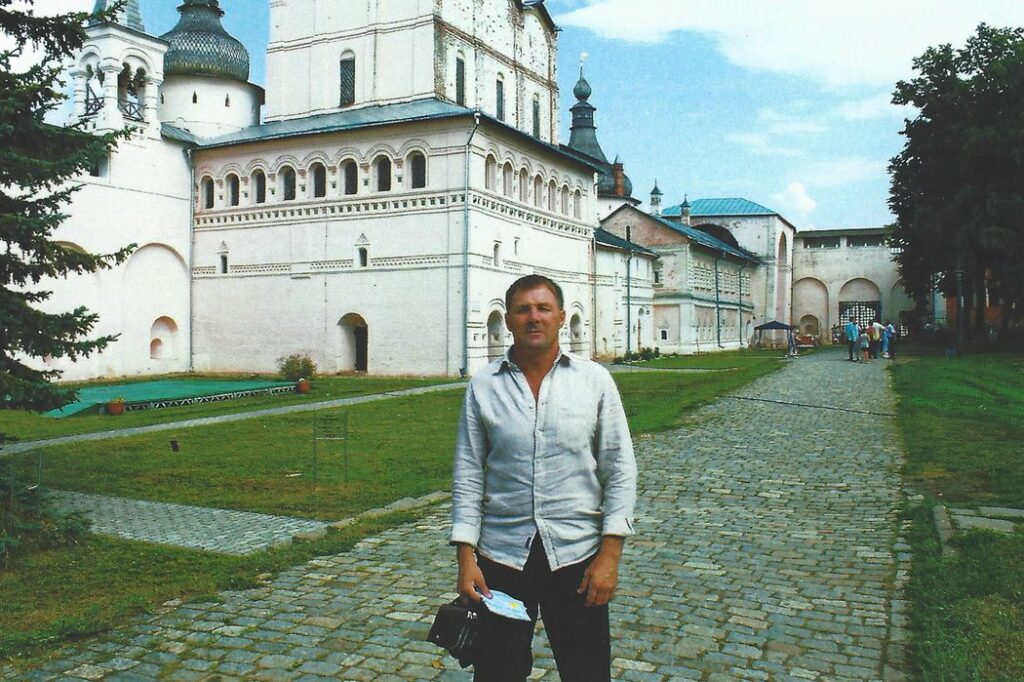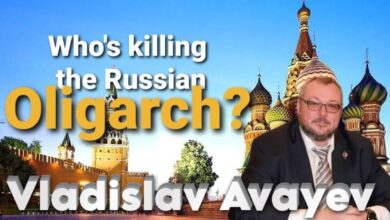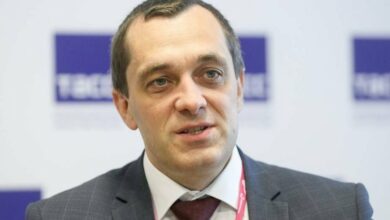Murder in Tiergarten Park: Vadim Krasikov’s Shocking Crime and Trial
Russian assassin Vadim Krasikov, riding a bicycle, trailed his target to a crowded children’s playground in a central murder in Tiergarten Park during lunchtime, a popular summer gathering place for families and workers.
Murder in Tiergarten Park: Russia’s Warning to Its Enemies
As the man entered Tiergarten park, Krasikov pedaled close behind. Not far from the swings, he pulled a pistol from a rucksack and shot him in the back, leaving his victim, a former Chechen insurgent leader, slumped on the ground. Krasikov got off his bike and calmly fired twice into the man’s head, watched by children and parents, witnesses said during a court trial that ended in his conviction.
In 2019, a German court determined that the murder of Zemlikhan Khangoshvili, whom Moscow alleged had led a 2004 attack in Russia, was a deliberate and brutally explicit message from Russia to its enemies abroad: Even if you seek refuge in the West, we will pursue you relentlessly.
Shortly before the 2021 verdict, Russian President Vladimir Putin instructed his top security adviser, Nikolai Patrushev, to explore the possibility of a prisoner exchange to secure the release of Vadim Krasikov. This decision highlighted the significant value that Putin, a former KGB officer who later led its successor agency, the Federal Security Service (FSB), placed on Vadim Krasikov.
Western officials have confirmed that Moscow brought up Vadim Krasikov’s case during negotiations for prisoner swaps. Vadim Krasikov’s release is pivotal to U.S. efforts aimed at securing the freedom of individuals detained by Russia, which may include U.S. Marine veteran Paul Whelan and Wall Street Journal reporter Evan Gershkovich. The FSB detained Gershkovich, a 31-year-old American citizen, on March 29 while he was working on a reporting assignment. He is currently detained on charges of espionage, allegations that both Gershkovich, the Wall Street Journal, and U.S. officials vehemently deny.
Just ahead of the 2021 verdict, Russian President Vladimir Putin instructed his top security adviser, Nikolai Patrushev, to explore a potential prisoner swap aimed at securing the release of Vadim Krasikov, as per information from a former European official with ties to senior Russian government figures. This move highlights the significant importance Putin places on Vadim Krasikov, who is a former KGB officer and later led its successor agency, the Federal Security Service (FSB).
U.S. Efforts to Negotiate Release: Vadim Krasikov’s Role Revealed
As a result, according to reports from Western officials, Moscow has brought up Krasikov’s case in discussions involving potential prisoner exchanges. According to these officials, Vadim Krasikov is a key figure in U.S. efforts to negotiate the release of individuals held by Russia, potentially including U.S. Marine veteran Paul Whelan and Wall Street Journal reporter Evan Gershkovich. The FSB detained 31-year-old American citizen Gershkovich on March 29 while he was working on a reporting assignment, and he now faces espionage charges, which he, the Journal, and American authorities vehemently deny.
Western officials involved in diplomatic negotiations with Russia regarding hostage situations revealed that President Putin expressed interest in negotiating solely for the release of Krasikov. It is worth noting that Putin has previously sought the return of Russian agents detained during covert operations in foreign countries. In a notable incident from 2004, he extended gratitude to the Emir of Qatar for repatriating two individuals convicted of planting a car bomb that led to the death of a Chechen rebel leader on the run. Russia consistently denied any involvement in the killing.
Several officials from different countries have suggested the possibility of a multilateral agreement to exchange Russian detainees held in Western nations for Western citizens imprisoned in Russia. This potential arrangement may also encompass incarcerated dissidents, including the prominent figure Alexei Navalny.

President Biden expressed his commitment in July to exploring a potential prisoner exchange involving Gershkovich with the Kremlin, though specific details were not provided. Deputy Foreign Minister Sergei Ryabkov stated in April that Russia would only consider such a swap after a verdict in the Gershkovich case. It remains to be seen if Berlin will entertain the idea of exchanging Krasikov. Notably, Germany faces legal complexities, as a government legal opinion from the previous year asserted that a convicted murderer cannot be subject to exchange.
Vadim Sokolov: A Tourist or a Russian Operative?
Engaging in discussions related to Krasikov would be intricate and unpredictable, caution Western officials, given the gravity of his crime. A German court had ruled that the Russian state had orchestrated the murder, which occurred at midday in Murderi in Tiergarten Park near the German chancellor’s office.
Upon carefully reviewing the original content, it appears to be a description of a significant event involving an assassination and the subsequent actions of the perpetrator. The purpose seems to be to provide an account of the incident and the challenges faced by German prosecutors in identifying the assassin. However, the original text could benefit from improvements in grammar, word choice, sentence structure, and clarity. Additionally, the tone and style should be adjusted to enhance readability.
With Khangoshvili lying lifeless near the children’s playground, the assassin swiftly mounted his bicycle and pedaled away. He eventually halted by the nearby Spree River, where he executed a series of actions: changing out of his clothes, removing a wig to reveal a bald head, and discarding his disguise, bicycle, pistol, and silencer into the water. Afterward, he used an electric razor to shave off a portion of his beard.
Two observant passersby witnessed these peculiar actions and promptly notified the police. Within minutes, law enforcement officers arrested the individual as he attempted to board an electric scooter. Subsequently, the police successfully retrieved the discarded items, which bore his fingerprints and provided crucial DNA evidence.
The German prosecutors had their suspect in custody, but for the following two years, they struggled to ascertain his true identity.
At the age of 58, the man in custody identified himself as Vadim Sokolov, asserting that he was merely a tourist with no ties to the Russian government. His Russian passport supported this claim by indicating his name as Sokolov. During interrogations, he maintained that his sole reason for being in Berlin was to visit his lover, a married woman. The Russian embassy in Berlin echoed his assertion, confirming him as Vadim Sokolov rather than Vadim Krasikov.
Russia’s Response: Political Motivations and Counterclaims
In October 2020, when his murder trial commenced, Krasikov remained steadfast in his narrative. Through collaboration with Kyiv police and the investigative platform Bellingcat, German prosecutors later verified his identity as a Russian covert operations veteran. They asserted that Krasikov was probably affiliated with the clandestine Vympel department of the FSB, now known as V, specializing in covert operations abroad.

Krasikov firmly denied involvement in the murder of Khangoshvili and rejected any affiliation with Russian security services. He simply responded with a courteous “no, thank you” when the judge asked if he had any final remarks before his conviction. In December 2021, a German court found him guilty of murder, characterizing the fatal shooting as an act of state terrorism, and sentenced him to life imprisonment.
Russia’s Foreign Ministry countered the verdict, alleging it to be politically motivated and claiming that Western intelligence services had fabricated the accusation of Moscow’s involvement in the murder. In their statement following the verdict, the foreign ministry insisted on Krasikov’s innocence and asserted that the convicted individual was Sokolov, not Krasikov.
The Russian embassy in Berlin declined to provide comments for this article and instead referred to the foreign ministry’s statement, which did not respond to requests for further comments.
This account of the case is based on court records, interviews with individuals acquainted with Krasikov, his relatives, European and U.S. officials, and individuals familiar with the murder investigation.
Porsches, BMWs
Krasikov hails from Kenestobe, a village located in a Kazakhstan region renowned for its cattle farming and lead mining activities. He had a stint in the Soviet army during the conflict in Afghanistan. Subsequently, he became a member of prestigious military divisions within Russia’s Interior Ministry and the FSB, which is Russia’s primary domestic intelligence agency, as confirmed by his brother-in-law’s testimony during the trial.

Krasikov had two marriages, with his second spouse being Kateryna Krasikova, a woman from Kharkiv, a city located in northeastern Ukraine. He informed his wife’s family about his affiliation with Russian security services but provided limited details, as mentioned in an interview with his brother-in-law, Aleksandr Vodorez.
Photographs from Krasikov’s wedding in Moscow in July 2010, found in court records, reveal the presence of FSB officers among the wedding guests by the Moskva River. He and his second wife resided in an upscale apartment in Moscow. According to Vodorez, Krasikov’s wife informed her family that he earned around $10,000 per month and bonuses for what he referred to as business trips, which occasionally extended for weeks.
Krasikov frequently dressed in designer clothing and took vacations in the Mediterranean, as recounted by Vodorez. Krasikov’s wife expressed her frustration to her relatives about his habit of frequently changing luxury cars, including Porsches and BMWs, which didn’t allow her enough time to become accustomed to them.
Krasikov, who had a compulsive habit of washing his hands, once boasted about encountering Putin at an exclusive military training facility, as remembered by Vodorez. According to Krasikov, Putin was skilled in shooting.

German prosecutors obtained surveillance footage from 2013 that depicted a man they identified as Krasikov carrying out the murder of a Russian businessman, a crime resembling the killing of Khangoshvili. The video captures Albert Nazranov, a businessman with interests in the Caucasian Republic of Kabardino-Balkaria, walking and subsequently running in Moscow as he is approached by a man on a bicycle. Nazranov collapses after being shot in the back and head.
Shortly after the homicide, Russian law enforcement initially issued an Interpol arrest warrant for Vadim Krasikov, but this warrant was later rescinded. German prosecutors suspected that local authorities had sought assistance in apprehending Krasikov, but they changed their decision upon discovering his ties to Russian security services.
In the Khangoshvili case, crucial information for German prosecutors came from Krasikov’s in-laws in Kharkiv. They provided a photograph of Krasikov with tattoos, taken during a beach vacation. To positively identify Krasikov, forensic experts used the tattoos in the image—a coiled snake on his forearm and a panther skull surrounded by wings on his left shoulder, which stand for the symbol of the Russian Interior Ministry’s special forces.
Following his arrest in 2019, Krasikov’s wife and child relocated to Russian-controlled Crimea and currently reside under the surveillance of the FSB, according to sources close to the family.
Helping hands in Vadim Krasikov’s Shocking Crime
Before heading to Berlin, Krasikov sought a tourist visa from the French consulate in St. Petersburg. He utilised a recently issued Russian passport under the alias Vadim Sokolov. On August 17, he boarded a flight from Moscow to Paris.

Once in Paris, Krasikov arranged a sightseeing tour and captured selfies at iconic sites like the Eiffel Tower. Subsequently, on August 20, he travelled to Warsaw and checked into the Warsaw Novotel Hotel. Engaging a Russian-speaking guide, Krasikov explored the city and documented his travels, including a selfie at the Wilanów palace and museum, a baroque castle situated on the outskirts of Warsaw.
Hotel staff, when interviewed by German investigators, depicted him as a well-mannered and stylishly dressed individual sporting a well-groomed beard. Krasikov, during his stay in Warsaw, even went so far as to request a manicure through the hotel receptionist at a nearby beauty salon. Upon completion, he expressed satisfaction and generously tipped the receptionist.
On August 22, he departed for Berlin, leaving behind both his luggage and mobile phone in his Warsaw hotel room, which he had reserved until August 25—the day he intended to return to Moscow, as detailed in court records.
In Berlin, he engaged with individuals who supplied him with new attire, a black mountain bike, and information regarding Khangoshvili’s daily activities, as disclosed by German investigators. Additionally, he received a Glock 26 9mm pistol, complete with a silencer and an extra magazine. To facilitate his escape, accomplices strategically placed an electric scooter along the bank of the Spree River.
Khangoshvili, a Chechen insurgent and Georgian citizen, fled from Georgia to Germany in 2016. His motivation was to seek asylum, as he claimed to be facing repeated assassination attempts orchestrated by Russian operatives in his home country. Despite his asylum request being denied by Germany, he, like other refugees, continued to reside in the country.
Since 2004, Khangoshvili had been a target of Moscow’s scrutiny due to allegations that he led a raid by Chechen fighters. This raid resulted in the takeover of a significant part of Nazran and the killing of high-ranking security officials, including FSB officers. In 2012, Moscow shared a list of 19 wanted terrorists, including Khangoshvili, with other nations, including Germany.
Krasikov’s Patient Wait and Disguise


Russia expressed dissatisfaction with the Western response to its extradition requests, prompting Moscow to resort to extrajudicial measures such as targeted killings abroad, a practice sanctioned by Putin since 2006. By 2019, five individuals from the terrorist list had met violent ends, either through assassination or suicide, including Khangoshvili.
On August 23, 2019, at approximately 11:30 a.m., Krasikov monitored the entrance of Khangoshvili’s apartment, located on the third floor of a 19th-century Wilhelminian-style building with a decorative red brick facade. Khangoshvili, a practicing Muslim, typically left for a nearby mosque and strolled through the Assassination in Tiergarten park around noon.
Wearing a black, longhair wig, a baseball cap, Ray-Ban sunglasses, a gray hoodie, neon-green socks, and cycling gloves, Krasikov, armed with a loaded pistol equipped with a silencer in a black rucksack, patiently waited. At 11:50 a.m., Khangoshvili departed, and Krasikov, on a bike, followed. A single shot just below the left shoulder blade proved fatal, witnessed by numerous parkgoers, restaurant patrons, and staff.
During the trial, Krasikov displayed disinterest, occasionally removing the translation headphones during witness testimonies against him. Following his sentencing, authorities transferred Krasikov from Berlin to a confidential high-security facility in Bavaria due to concerns that Chechen inmates from his previous prison might attempt to harm him.
In his compound by the Danube River, Krasikov enjoys privileges granted by German law to prisoners, including daily walks in the garden and access to books in his native language. He has been engrossed in Soviet-era novels glorifying the exploits of a Kremlin secret agent.








